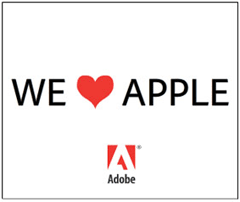 Even if the Android Market never blossoms into a gaming powerhouse, online Flash gaming portals such as Kongregate may fill Android’s void.
Even if the Android Market never blossoms into a gaming powerhouse, online Flash gaming portals such as Kongregate may fill Android’s void.
I’m not at Google’s I/O conference, but the folks at Kongregate tell me their site will be one of the headliners when Adobe shows off Flash on Android 2.2. Kongregate has already set up a mobile Web site with Android in mind, containing over 100 games optimized for the touch screen. That’s nothing compared to the 28,000 games hosted on Kongregate’s full Web site, but it’s a start.
Kongregate co-founder Jim Greer said eight developers optimized 30 of their own games for the mobile site by reformatting text and icons for the small screen and in some cases adding touch-based substitutes for keyboard input. The remaining 70 games are basic ports of their PC counterparts. None of the games were designed specifically with the smartphone in mind, but that will probably change if Flash 10.1 for Android launches smoothly.
Kongregate’s mobile site is also missing some of the main site’s extra features, such as achievements, community chat and the ability to donate money to developers. There’s no advertising, either. Greer said he’s not worrying about revenue yet, though I’m sure developers who make money on Kongregate will want answers soon.
As for offline play, Greer said he’s looking into possibilities for native apps, but he’s waiting to see what Google does for the Android platform. This led me to ask him the extent of Google’s involvement with Kongregate. As I’ve said before, a strong social glue across all games is one way to boost Android’s status as a gaming platform. Greer clammed up when I pressed further, stuttering for a moment and falling back on “no comment.” It’s my opinion that Google is planning some sort of Android gaming network, but I couldn’t pry anything solid out of Greer.
For now, the important thing is that when Android 2.2 goes over the air, users will immediately have more than 100 free games to play. Steve Jobs is free to deflect the argument by talking about how many games are in the iPhone’s App Store, but it’s just not the same.





